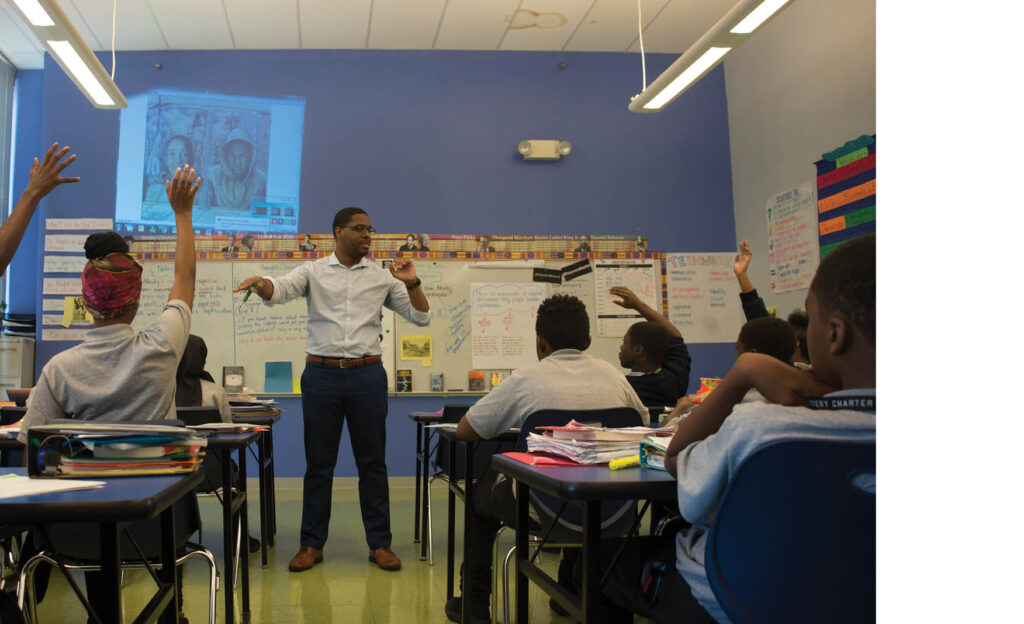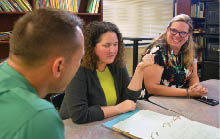Feature Facts: December 2022
Insights Into Recruitment and Retention

There are no quick and easy fixes for strengthening the educator pipeline. In a roundtable discussion, three leaders from very different school districts share ways to go about recruiting and retaining the teachers our students need. These leaders include Julie Kasper, the principal of Century High School in Hillsboro, OR; Winston Sakurai, the president of the Hawaii Association of Secondary School Administrators and instructional practices and curriculum review executive officer for the Hawaii State Department of Education in Honolulu, HI; and Ervin Trujillo, assistant principal of Piedra Vista High School in Farmington, NM.
Building and Sustaining a Robust and Diverse Pipeline

For districts looking to diversify their educator workforce, building effective recruiting systems, paying teachers like the professionals they are, and engaging in social media are worthy undertakings, but they won’t succeed if a school district doesn’t also take a hard look at how diverse teachers experience the school communities they’ve been invited into, writes Sharif El-Mekki, CEO of The Center for Black Educator Development. He notes the following benefits of having greater numbers of Black and Brown teachers:
- Higher graduation rates
- More Black students selected for gifted education and rigorous study
- Fewer students disciplined and pushed out of school
A Homegrown Approach

By looking close to home—at the school’s own graduates, in fact—Principal Adam Lane of Haines City High School in Polk County, FL, has managed to keep his school fully staffed. At last count, some 60 alumni were working as teachers, support staff, and an administrator at the school. The recruitment takes a variety of forms:
- Lane regularly pitches to seniors the idea of returning to work at the school after college.
- Students who show a stronger interest in education can work as student aids, shadowing a teacher or staff member to see what the job is like.
- Many long-term substitutes are working toward earning their degrees so they can be hired at the school.
Telling Our Stories

Educators do many things well, but Holly Blair of the Maine Principals’ Association (MPA) points out that one thing the profession doesn’t do a good job of is highlighting exceptional work in schools. One way to change that is to recognize outstanding school leaders. To that end, the MPA:
- Celebrates and amplifies the voices of the Principal of the Year and the Assistant Principal of the Year
- Tells the community about the amazing things happening in schools, such as through a Positive Story of the Day
- Has building administrators share their knowledge with colleagues by presenting at regional and statewide conferences
